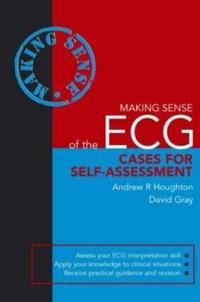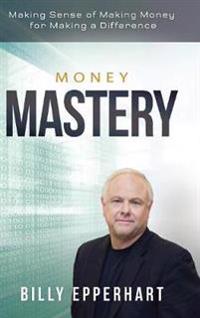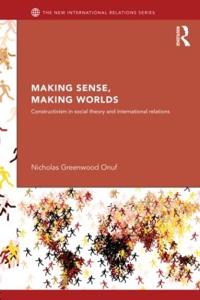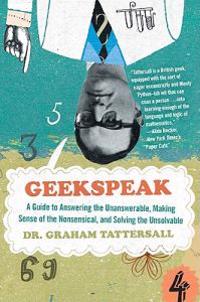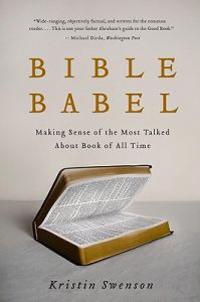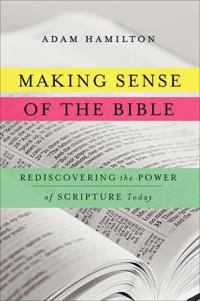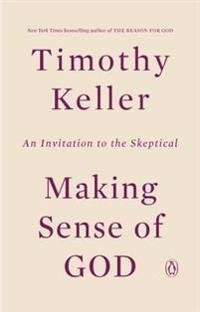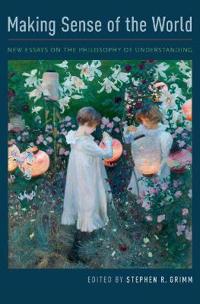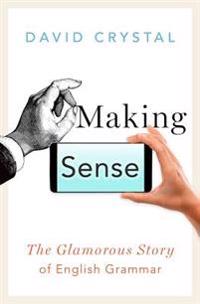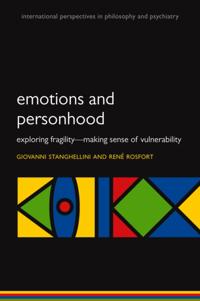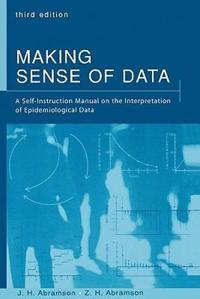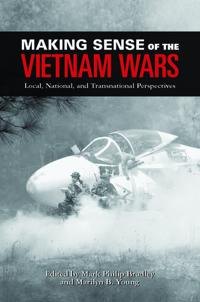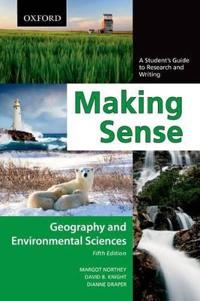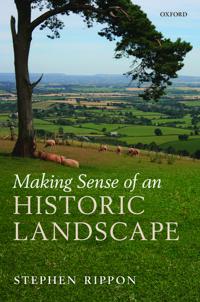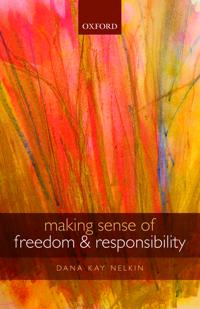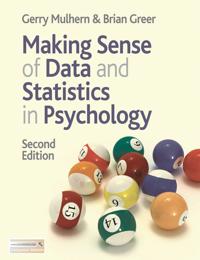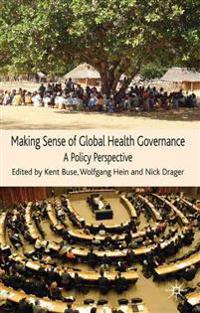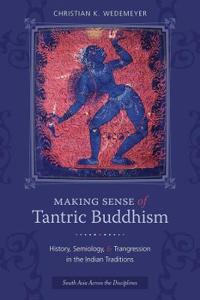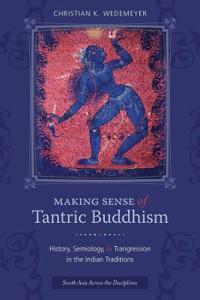Making Sense of the ECG (Häftad)
avMaking Sense
ISBN: 9780340946893 - UTGIVEN: 200905So you think you've grasped how to read and interpret ECGs? You can measure a QT interval, distinguish between VT and SVT and know when to refer a patient to a cardiologist? Consolidate your knowledge by putting the principles into practice. Making Sense of the ECG: Cases for Self-Assessment present[...]
Money Mastery: Making Sense of Making Money for Making a Difference
ISBN: 9781680311341 - UTGIVEN: 2017-03Making Sense, Making Worlds (Häftad)
avNicholas Onuf
ISBN: 9780415624176 - UTGIVEN: 201209Nicholas Onuf is a leading scholar in international relations and introduced constructivism to international relations, coining the term constructivism in his book World of Our Making (1989). He was featured as one of twelve scholars featured in Iver B. Neumann and Ole Waver, eds., The Future of Int[...]
Geekspeak: A Guide to Answering the Unanswerable, Making Sense of the Insensible, and Solving the Unsolvable (häftad)
ISBN: 9780061626784 - UTGIVEN: 2010-02How big is your vocabulary?How heavy is your house?Do the dead outnumber the living?What are the best words to use in a personal ad?We humans are a curious species, prone to think, ruminate, reflect, cogitate, mull over, and philosophize. We long to explain away the world around us, to answer all th[...]
Bible Babel: Making Sense of the Most Talked about Book of All Time (Häftad)
avKristin Swenson
ISBN: 9780061728266 - UTGIVEN: 2011-03Why does the film Magnolia end in a downpour of frogs?Is the serpent in the Garden of Eden the devil or just a snake?How do people use the Bible to argue different sides of today's most controversial issues?Why did Metallica's bass player name their song "Creeping Death" after watching The Ten Comma[...]
Making Sense of the Bible (Inbunden)
avAdam Hamilton
ISBN: 9780062234964 - UTGIVEN: 2014-03Denominations from evangelical to mainline continue to experience deep divisions over universal social issues. The underlying debate isn't about a particular social issue, but instead it is about the "authority of the Bible." In Making Sense of the Bible, Adam Hamilton, one of the country's leading [...]
Making Sense of God: Finding God in the Modern World (häftad)
ISBN: 9780143108702 - UTGIVEN: 2018-03We live in an age of skepticism. Our society places such faith in empirical reason, historical progress, and heartfelt emotion that it's easy to wonder: Why should anyone believe in Christianity? What role can faith and religion play in our modern lives? In this thoughtful and inspiring new book, p[...]
Making Sense of the World
ISBN: 9780190469863 - UTGIVEN: 2017-11This collection offers original work on the nature of understanding by a range of distinguished philosophers. Although some of the essays are by scholars well known for their work on understanding, many of the essays bring entirely new figures to the discussion.[...]
Making Sense: The Glamorous Story of English Grammar
ISBN: 9780190660574 - UTGIVEN: 2017-06In Making Sense, David Crystal confronts the foe of many: grammar. Once taught relentlessly to all students in the English-speaking world, grammar disappeared from most school curricula, so that terms such as "preposition" and "conjunction" now often confound children and adults alike. Explaining th[...]
Emotions and Personhood: Exploring Fragility - Making Sense of Vulnerability
ISBN: 9780191636226 - UTGIVEN: 2015-06How does a person experience emotions? What is the relationship between the experiential and biological dimensions of emotions? How do emotions figure in a persons relation to the world and to other people? How do emotions feature in human vulnerability to mental illness? Do they play a significant [...]
Crisis of Meaning, A: How Gay Men are Making Sense of AIDS (Inbunden)
avSteven Schwartzberg
ISBN: 9780195096279 - UTGIVEN: 1996-11-01Making Sense of the Molly Maguires (Inbunden)
avKevin Kenny
ISBN: 9780195106640 - UTGIVEN: 1997-10-01Making Sense of Data (Häftad)
avJoseph Abramson
ISBN: 9780195145250 - UTGIVEN: 2001-09This is a self-instructional manual on the interpretation and use of epidemiologic data that deals with the basic concepts and skills needed for appraising published reports or study findings. Applications in clinical medicine, public health, community medicine, and research are presented. The numer[...]
Making Sense of the Vietnam Wars (Häftad)
avMark Philip Bradley
ISBN: 9780195315141 - UTGIVEN: 2008-05Making sense of the wars for Vietnam has had a long history. The question why Vietnam? dominated American and Vietnamese political life for much of length of the Vietnam wars and has continued to be asked in the three decades since they ended. The essays in this inaugural volume of the National His[...]
Making Sense in Geography and Environmental Sciences (Häftad)
avMargot Northey, David B. Knight, Dianne Draper
ISBN: 9780195445824 - UTGIVEN: 2012-04The Making Sense series offers clear, concise guides to research and writing for students at all levels of undergraduate study. The volumes in the Making Sense series-covering humanities courses, the social sciences, life sciences, and engineering-are intended for students in any undergraduate cours[...]
Making Sense of Old Testament Genocide
ISBN: 9780198810902 - UTGIVEN: 2018-05This study investigates the interpretation of passages involving the concept or practice of herem in the bible, which are identified as more problematic. The texts under consideration contain prima facie divine commands to commit genocide as well as descriptions of genocidal military campaigns comme[...]
Making Sense of an Historic Landscape (Inbunden)
avStephen Rippon
ISBN: 9780199533787 - UTGIVEN: 201207Why is it that in some places around the world communities live in villages, while elsewhere people live in isolated houses scattered across the landscape? How does archaeology analyse the relationship between man and his environment? Making Sense of an Historic Landscape explores why landscapes are[...]
Making Sense of Freedom and Responsibility (Häftad)
avDana Kay Nelkin
ISBN: 9780199684762 - UTGIVEN: 201308Dana Kay Nelkin presents a simple and natural account of freedom and moral responsibility which responds to the great variety of challenges to the idea that we are free and responsible, before ultimately reaffirming our conception of ourselves as agents. Making Sense of Freedom and Responsibility be[...]
Making Sense of Evolution (Häftad)
avMassimo Pigliucci, Jonathan Kaplan
ISBN: 9780226668376 - UTGIVEN: 2006-11"Making Sense of Evolution "explores contemporary evolutionary biology, focusing on the elements of theories--selection, adaptation, and species--that are complex and open to multiple possible interpretations, many of which are incompatible with one another and with other accepted practices in the d[...]
Making Sense of Data and Statistics in Psychology (Häftad)
avGerry Mulhern, Brian Greer
ISBN: 9780230205741 - UTGIVEN: 201105'I became a psychology student because I'm curious about why people behave as they do. Why am I expected to study statistics?' Statistics is one of the most useful elements of any psychology degree. This popular textbook will equip you with the tools needed not only to make sense of your own data an[...]
Making Sense of Global Health Governance: A Policy Perspective (Inbunden)
avKent Buse, Wolfgang Hein, Nick Drager
ISBN: 9780230209923 - UTGIVEN: 200905How is health governed in the 21st century? Globalization has intensified risks of ill-health and catalyzed interest and investment in making the world a healthier place. But are existing arrangements adequate to address these risks and are we taking advantage of emerging opportunities or squanderin[...]
Making Sense of Anarchism (Inbunden)
avDavide Turcato
ISBN: 9780230301795 - UTGIVEN: 2012-10-17Can we make sense of anarchism or is that an oxymoron? Guided by the principle that someone else's rationality is not an empirical finding but a methodological presumption, this book addresses that question as it investigates the ideas and action of one of the most prominent and underrated anarchist[...]
Making Sense of Constitutional Monarchism in Post-Napoleonic France and Germany (Inbunden)
avMarkus J. Prutsch
ISBN: 9780230316492 - UTGIVEN: 2012-12-07Focusing on the genesis of 'constitutional monarchism' in the context of the French Restoration and its favourable reception in post-Napoleonic Germany, this study highlights the potential and limitations of a daring attempt to improve traditional forms of monarchical legitimacy by means of a modern[...]
Making Sense of Tantric Buddhism (Inbunden)
avChristian Wedemeyer
ISBN: 9780231162401 - UTGIVEN: 201301Making Sense of Tantric Buddhism fundamentally rethinks the nature of the transgressive theories and practices of the Buddhist Tantric traditions, challenging the notion that the Tantras were "marginal" or primitive and situating them instead -- both ideologically and institutionally -- within large[...]
Making Sense of Tantric Buddhism (Häftad)
avChristian K. Wedemeyer
ISBN: 9780231162418 - UTGIVEN: 2014-07Making Sense of Tantric Buddhism fundamentally rethinks the nature of the transgressive theories and practices of the Buddhist Tantric traditions, challenging the notion that the Tantras were "marginal" or primitive and situating them instead -- both ideologically and institutionally -- within large[...]

